Missionary Stories
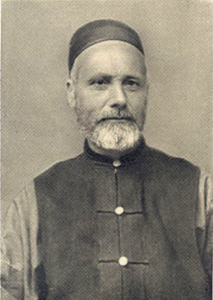 “Finding his contact with civilization was hindering him in his strenuous efforts to master the Mongolian language, he resolved…to persuade some Mongolian to receive him as an inmate of his tent…Gilmour feared nothing, but strode cheerfully over the plain making for the first tent he saw on the horizon.”1
“Finding his contact with civilization was hindering him in his strenuous efforts to master the Mongolian language, he resolved…to persuade some Mongolian to receive him as an inmate of his tent…Gilmour feared nothing, but strode cheerfully over the plain making for the first tent he saw on the horizon.”1
For twenty-one years James Gilmour worked among the Mongols of Northern China. After centuries of Buddhism, they were very contented with their way of life and saw no reason to turn from it. It was therefore ten years before Gilmour saw his first convert. This man was saved at a roadside inn, then after a twenty mile walk, prayed with Gilmour and left him at the crossroads.
Over an eight month period, Gilmour recorded preaching to around 24,000 people, treating 6,000 for illnesses, selling 3,000 Christian books and distributing 4,500 tracts. The literature distribution among this nomadic people covered over 180,000 square miles and was a task too large for any one man. During that eight month period, two people openly professed Christ.
What could drive a man to continue under such unspeakable odds? What could compel him to continue when his followers were turned away by the bad testimonies of other missionaries? What kept him going when his beloved wife lay in the grave and his dear boys were in England? God gave him passion, He gave him purpose, and He gave him the strength to carry on. God also gave tears to stoic Buddhist lamas when they heard of the death of “our Gilmour.”
Gilmour was able to start three small churches among the Mongols of China and was known among them all for his faithfulness in spreading the gospel. Near the end of his life he said, “Lately I am becoming more and more impressed with the idea that what is wanted in China is not new lightning methods so much as good, honest, quiet, earnest, persistent work in old lines and ways.” This was spoken by the man whom everyone admired for his courage and adventurous life. He was a servant of Christ, that’s all.
1Lambert, John C., Missionary Heroism (San Antonio, TX:Vision Forum, Inc.,2005-06)8
 “I shall never go into the ministry until God takes me by the scruff of the neck and throws me in.” Most Christians would be surprised to know that these words were spoken by Oswald Chambers, author of the devotional book “My Utmost for His Highest.”
“I shall never go into the ministry until God takes me by the scruff of the neck and throws me in.” Most Christians would be surprised to know that these words were spoken by Oswald Chambers, author of the devotional book “My Utmost for His Highest.”
When he wrote these words, Oswald Chambers was in art school, preparing to turn the world of art upside down by being a witness for Christ to an exclusive group of people. He was a gifted artist and probably would have done well, but God closed door after door in his face and called him in another direction.
Chambers wrote to a friend, “the repeated and pointed shutting of doors that seemed just opening . . . leads me to consider most earnestly before God what is His will.” Shortly after this he wrote, “my whole being is ablaze and passionately on fire to preach Christ. All my art aims are swallowed up in this now. . . . in the midst of a keen consciousness of complete unworthiness, my soul cries out within me—Here am I, send me.”
Once Chambers surrendered to the call of God, God began to use him mightily. After ministering as a traveling preacher and as the principal of a Bible training college, Chambers entered his last and greatest field of service—reaching British and Australian soldiers from a Y.M.C.A. tent in Cairo during W.W.I. Although seasoned workers predicted that the soldiers would never attend religious meetings, the tent was packed with hundreds of men every week. Many of the entries in his devotional book come from the talks given in that meeting tent. The Chambers also kept a continually opened house where they were able to reach thousands of soldiers. Chambers died at just forty-three, but hundreds of thousands have been inspired to earnestly seek God because of his little book, “My Utmost for His Highest”.
When God clearly directs, the choice is simple: to obey, or disobey. Are we seeking God’s will, or stubbornly searching for an open door in an area where they all close in our faces?
Quotations from Oswald Chambers: Abandoned to God by David McCaseland
John Chamberlain had no idea what the future would hold when he embarked on his journey to India. With his ministerial education, his new wife, and his zeal to reach lost souls, he was ready to begin his missionary journey. His path seemed clear and straightforward. He would go to Calcutta and learn the Bengali language. He would work with William Carey and evangelize the lost Hindu and Bengal people. He would serve God with his family. Life does not always follow our plan, however, and this Baptist missionary soon found his faith and commitment tested.
Chamberlain and his wife set sail for Calcutta in August, 1802, and not long after his wife gave birth to a beautiful baby girl. Chamberlain was overjoyed at the prospect of becoming a father but soon was recorded as saying, “But alas! I saw not the cloud behind.” For, after seven short days, their daughter grew sick and died, and they were forced to commit her body to the sea.
I would like to say this is the hardest thing he endured, but it was just the beginning. He struggled with his health off and on, as did his wife. He saw many horrible things in Calcutta and the village of Cutwa. He saw women held down by large, bamboo poles and burned alive and the elderly left outside to die. His wife became violently ill and quickly passed away. He later remarried, but after only eight months his new wife went into labor and died during childbirth. He took her body back to Calcutta and upon arrival found that the son he had left in the care of friends there had passed away. Trial after trial, blow after blow, he was tested and tried. Yet he remained faithful.
Shortly after finding out about the death of his third child he quoted Job, saying, “Though he slay me, yet will I trust in him.” Chamberlain never lost his passion for reaching the lost. He went from village to village evangelizing and talking to whoever would listen. Though he struggled greatly with his own health and eventually succumbed to tuberculosis at only forty-four years of age, he ministered tirelessly and tenaciously. He had an aptitude for languages and applied himself to translating the Bible into both Hinduwee and Brij. During the days when he was too sick to preach in the villages, he would sit at home and translate for hours.
He did not let discouragement or the fatigue that comes with sickness keep him from pursuing the calling of God. He chose to remain faithful, to remain passionate and to remain surrendered to God’s will for His life. He chose to trust. Many times we, too, get discouraged from the grind of life. Trial and heartbreak that come our way seem like obstacles insurmountable. We must remember Psalms 18:2: “The Lord is my rock, and my fortress, and my deliverer; my God, my strength, in whom I will trust; . . .” Jesus has already promised His strength. All that is left for us to do is trust and lean on Him.
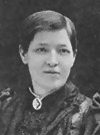
Into the trepid jungle of Africa strode a young Scotch woman intent on spreading the gospel of Christ. She was a small, naturally timid woman, but nothing was too perilous when the cause of Christ was at stake.
Mary Slessor found Jesus as a slum child in a textile factory and instantly gave her life to Him. Born in Aberdeen, Scotland, she had high dreams of evangelizing the little black children of Calabar, Africa. When not working at the factory or studying, she was playing at teaching a class full of little black boys and girls. She prayed to be sent to Calabar. When she grew older, she took on a class of wild street children for Bible instruction. She wept for Calabar. She took on a Sabbath School class. Still she longed for Calabar. She worked at the mill, and cared for her family. On and on she labored, until the Lord gave peace and direction to follow her dreams. Inspired by David Livingstone she applied to a mission board and was accepted. On August 5, 1876, at age twenty-eight, she reached that ominous continent, Africa, “The White Man’s Grave.” Besides her experience as a mill-worker and the training of her mission board, she had her faith in God and a small thin body absolutely committed to his will. She had made it to the Dark Continent!
Mary took God’s promises at face value, never halted by discomfort or danger. Nothing was greater than her courage or her faith in God, and that is what made her great. Openly challenging the power of chiefs and witch doctors, she hand carved the destiny of an entire country. She was able to abolish twin murder, wife murder, wholesale slaughter at the death of a chief, and numerous other demonic practices. She spent forty years untangling the feudal disputes of naked savages and winning them to Christ one by one, each conversion a victory felt by hundreds of lives.
Many wonder at the power Mary possessed, one who had no Bible college degree, linguistic training, or even a high school diploma. How was she able to accomplish so much? Her years in Calabar were not the effect of her greatness; no, they were the result of her determination as a teenager to be used of God. She saw not what she could do for Him, but the lives that needed touching, the souls that needed reaching. She saw them in Calabar, but first she saw them in Aberdeen. First she worked in Aberdeen. She was surrounded by hurting people, and she touched them.
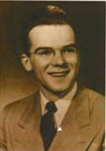
“ ‘He that findeth his life shall lose it: and he that loseth his life for My sake shall find it.’ I have been directed to these and similar passages again and again. I should like to put these truths to the utmost test… Seemingly God delights in many instances to place men in situations which magnify their weaknesses for the simple delight of showing Himself strong to all observers” (Unfolding Destinies by Olive Fleming Liefeld).
Peter Fleming was raised in a Christian home but was not a believer until age thirteen. In his youth he was respected for his spiritual maturity and knowledge of God’s Word. As a gifted athlete he had opportunity to pursue a career in sports. However, it was God, not sports, that had Pete’s heart.
While studying philosophy at the University of Washington, Peter made a friend named Jim Elliot. Jim’s influence on Pete was tremendous, and they both followed God’s call to Ecuador. In 1954, Pete married his childhood sweetheart, Olive. God put a burden on their hearts to take the Gospel to the Waodani (Auca) Indians, a tribe well known for their brutality.
Pete, Jim, and three other men spent three months dropping gifts from the air and planning their first attempt to make contact with the Auca. They finally landed their plane in Auca territory on January 2, 1956. For several days, the missionaries enjoyed visits from three Auca Indians. Hopes were rising that the Indians would realize they wanted to be friends.
However, on January 8, 1956, a group of spearmen attacked the missionaries at the beach, killing all five men. I wonder if, as Peter Fleming faced death at the hands of the people he was trying to reach, he thought of the statement he had made years earlier. I wonder if he knew that in his death, the ultimate magnification of man’s weakness, God would be shown strong to millions of observers. Through the weakness of five men, God raised up a mighty army of laborers to enter His harvest fields, including some who eventually saw the Auca people evangelized.
Regardless of what weaknesses must be revealed, may we be willing for God to use our lives to show Himself strong!
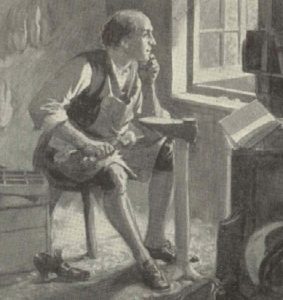
“Thy Redeemer … The God of the whole earth shall He be called.” Isaiah 54:5
In 1783, above a cobbler’s bench in England, there hung a large hand-made map of the known world. As the young cobbler worked, he prayed for little-known lands full of people who were ignorant of the Gospel. Between shoe-making, school teaching, and itinerant preaching, he found time to teach himself Greek, Hebrew, Latin, Dutch, French, and Italian. In 1789, eager to spread his vision of the need for organized world missions, he went to pastor a large church in Leicester.
In spite of indifference, resistance, and even public rebuke, he presented his burden tirelessly, finally gaining the attention of the Baptist world in a sermon on world missions of which the keynote was “Expect great things from God. Attempt great things for God.” As a direct result of this sermon the Baptist Missionary Society was formed “for the propagation of the Gospel among the heathen.” Thus William Carey is known as “the father of modern missions.”
Unselfishly, Carey proposed the name of a Christian doctor as the first missionary to be sent by the board. However, when the board determined that he should go with Dr. Thomas, Carey was overjoyed. For forty years Carey labored in India both preaching the Gospel and translating the Bible. God so gifted and enabled him with an incredible talent for languages, that he was involved in translating the Scriptures into forty different languages, eight of which included the entire Old Testament. Although Cary suffered the loss of three children, was widowed twice, often hindered by the government, and frequently suffered financial loss, those around him were strongly aware that his confidence was firmly established in God. In the midst of his difficulties Carey testified, “I have rejoiced that God has given me this great favor ‘to preach among the Gentiles the unsearchable riches of Christ.’ I would not change my station . . . for all the wealth of the world.”
From a cobbler’s bench God chose a man to rekindle the fire of evangelism in the church. God delights in using the humble, the obscure, and the unlikely to fulfill His purposes—all He needs is someone willing to obey.
Information taken from William Carey: Father of Modern Missions by Basil Miller.
“The Lord is faithful, Who shall stablish you, and keep you from evil.”
II Thess. 3:3
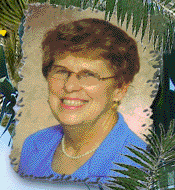
“From the very first, I wanted to go to the most primitive people in the world and so was thrilled when God gave me the privilege of going to West Papua.”* So writes Margaret Stringer, who served for thirty years among people who never heard the name of Jesus before 1980. After ten years on the southern coast of West Papua (1964-74), Margaret went to Senggo, an island village where mission work had just begun. As a linguist, she was there to help translate the Bible into the Citak language, but the team at Senggo had another assignment for her. Several villages had just been discovered further upriver—practicing cannibals who had recently killed four men from an oil company. The team sent Margaret with two Christian Senggo men to learn whether these villages spoke Citak, or some other language.
There was no place for the helicopter to land, so the pilot hovered above the ground while they jumped out. Until his return they were surrounded by cannibals who might, or might not, speak a language they knew! They were pulled into the longhouse by enthusiastically shouting men, but it was several minutes before Margaret could identify their speech as a dialect of Citak.
Margaret recalls, “I had never before eaten rat, but when a crowd of affectionate headhunters said, ‘Eat it, eat it,’ I didn’t feel like arguing.” This was the beginning of a long and interesting friendship with the Vakabuis people. From 1980-85 several long visits were made to the Vakabuis, with Senggo Christians preaching to the people in their own language. Floods, tribal wars, and the short tempers of the Vakabuis made the work slow and difficult. Within a year the people would ask, “What was the name of the Man who healed the blind man?” but it was four more years before the first Vakabuis were saved. Finally, a Senggo pastor was able to live among the Vakabuis people, and the church began to grow. Ten years later, the New Testament translation was complete. Margaret writes, “The most rewarding experience was the joy and privilege of translating the New Testament into the Citak language.” Margaret Stringer remained on the field until 2004 when she returned to the United States. But there are still tribes in the heart of West Papua that have never heard the gospel of Jesus Christ. They are waiting for the missionaries of this generation to go!
*From Cannibalism to Christianity by Margaret Stringer
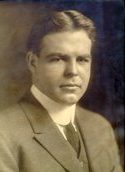
Any life lived wholly for Jesus is a life with “no regrets.” Will it cost something? Yes, but the earthly cost fails to compare with the eternal rewards. William Borden was a young man who understood this truth and lived it out.
Though born into the wealthy “Borden Milk” family, William soon discerned that only heavenly riches are lasting and sought to use his resources to advance God’s Kingdom. While taking a trip around the world at age seventeen, William grew burdened by the spiritual darkness and needs he saw in other lands. He determined to prepare for service on a foreign field.
God first gave him a mission field among his classmates at Yale University. Each day was packed with purpose for William. “Every man in the University must be reached! . . . Any day in which work is not done for Christ is wasted. Moreover, I’m a fool for letting such be—for they are not pleasant.” William learned many lessons about self-discipline and trusting God during his time at Yale and also Princeton Seminary.
Thoughtful acts of service, earnest prayer, diligent study, and genuine love displayed in practical ways—these were characteristics of William Borden’s life. When his father unexpectedly died, William made the effort to write his mother every day in addition to his many school responsibilities. He sought to please the Lord in every area of his daily life, from recreation and study to his devotional life and student ministry. Many students came to Christ as a result of his yielded and faithful life.
In 1913, Borden arrived in Egypt to train for his life work among Muslim people. That same year, he contracted cerebral meningitis resulting in his early death. Only twenty-five years old, but such a full life! Newspapers all over the United States published accounts of the life that influenced many people worldwide, causing great advances in the Lord’s work. Freely giving not only of his wealth, but of himself in a joyful and natural way, counting it a privilege, not a sacrifice—this was Borden’s legacy. No life is wasted that is spent for Christ.
Information and quotations are taken from Borden of Yale by Mrs. Howard Taylor.
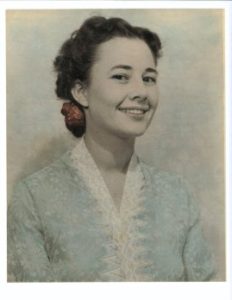
“Lassie, whatever you do, be a good soldier for Jesus Christ.” Dr. Jaffray’s last words to Darlene Deibler filled her mind as she approached the door of her cell. She was on death row, imprisoned to face a trial and death sentence by the Imperial Japanese Army.
Many years earlier at a missionary convention, ten-year old Darlene heard God’s call to a life of total commitment. She responded whole-heartedly, “Lord, I’d go anywhere for you, no matter what it cost!”
As a young bride of twenty-one, Darlene and her husband, Russell Deibler, began missionary work in the interior of New Guinea. Taking great care to learn the language and culture of the people, the Deiblers were consumed with a desire to reach them for Christ. Working closely with other missionaries, including Dr. Robert Jaffray, they looked forward to the day they could leave believers behind to comfort and encourage one another.
Then the unthinkable occurred. With the outbreak of World War II, the Japanese invaded the islands where the missionaries were serving and made them prisoners of war. Men and women were separated and taken to different places. As Darlene looked into her husband’s face for the last time, he quietly told her, “Remember one thing, dear: God said that He would never leave us nor forsake us.”
During four years in a notorious Japanese prison camp, Darlene clung to the promises of God’s Word. Her example of faith in God and loving spirit won the hearts of fellow prisoners and even some of her captors. After hearing the tragic news of her husband’s death, Darlene had an opportunity to share the gospel with her ruthless camp commander, Mr. Yamaji. God used this to change His heart.
Soldiers do not get to choose where they are placed. As a soldier of the cross, Darlene bravely faced a death sentence for a crime she did not commit. God miraculously spared her life, and after the war she returned to New Guinea to resume missionary work. Darlene understood the cost of commitment to Christ and gladly obeyed. Are we willing to do the same?
Quotations taken from Evidence not Seen by Darlene Deibler Rose
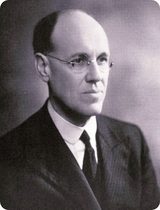
Turning his back on a promising engineering career, 22 year old James O. Frasier went to the mountains of China to reach the Lisu tribespeople of Yunnan Province with the Gospel of Jesus Christ.
Intense opposition confronted him. Not afraid of primitive living, James was an adventuresome person who loved mountaineering. But the thought of working alone to start a church that could stand against such a powerful form of spirit worship was daunting. Though all God’s hosts stood with him, James realized that “he would be a missionary simpleton who expected plain sailing in any work of God.”
Feeling keenly his need for support, James wrote his mother asking her to consider forming a group of like-minded friends to faithfully pray for the work among the Lisu. “… I shall feel greatly strengthened if I know of a definite company of pray-ers holding me up. I am confident that the Lord is going to do work, sooner or later among the Lisu here.”
In return for their prayers, James promised to write the group regularly. Many agreed to share the burden with him, understanding their definite commitment. James relied so much on his prayer supporters that he sent them maps of the villages and detailed reports of the people. He wrote each supporter separately, sharing honestly about his joys and trials, and answering all their questions. When James battled with discouragement, impatience and listlessness on the field, the prayers of God’s people sustained him.
After experiencing seasons of virtually no fruit, their fervent prayers paid off. James excitedly reported of God’s work among the tribespeople. “…I find that in this new district alone there are over 240 families professing to be Christians…so there are now 450 families of tribespeople for whose teaching and shepherding we are responsible.”
There are no “solo workers” in God’s plan. Will you be a co-worker, lifting up missionaries and lost souls in your prayers?
Quotations from “Mountain Rain” by Eileen Fraser Crossman
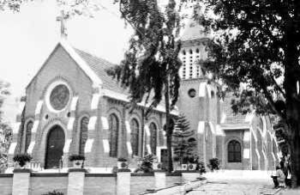
With a weary sigh, Jacob Chamberlain stretched out on the floor of his bamboo hut. A long walk through the Indian jungle to reach the little village had left him tired and footsore. He opened his New Testament and commenced reading. As he let the Book slide through his fingers, Dr. Chamberlain suddenly became aware of a pair of beady eyes and a forked tongue a few feet above his face. A ten-foot snake was coiled in the rafters, descending towards the resting missionary. Bounding to the doorway, Dr. Chamberlain seized an iron spit, speared the snake to the rafter, and beat its head furiously with a bamboo cane!
As Dr. Chamberlain dropped the dead snake to the ground, the chief men
of the village hailed him with gifts of food and much thanksgiving. He
had destroyed the terror of the village. Now, all the villagers gladly
listened as he told of the old serpent, the devil, and the One Who has
power to defeat the devil. God had made a way for these people to be receptive to the Gospel.
Born in 1835 in Sharon, Connecticut, Jacob Chamberlain surrendered his life to be a missionary at a young age. However, he was kept back by the need to care for his parents. He could not escape his call, though, and God made a way for him to go with his father’s blessing.
He attended seminary and medical school, married a godly young lady, and in 1860, arrived in India. The Telegu people proved to be a ripe harvest
field. People would come from miles around to receive medical treatment
from the young doctor. As patients were usually preached to before being treated, healing their bodies made a way for the Savior to heal their souls.
In addition to being an eminent physician, Dr. Chamberlain was a great scholar and worked on translating the Bible into Telegu. He also founded numerous Christian schools. When he died in 1908 from jungle fever, his two sons, Louis and William, continued his work.
Jacob Chamberlain labored in India for forty-eight years, and through him God made a way for numberless souls to be saved. Our God hasn’t changed, and for today’s Christian who will follow, God will make a way.
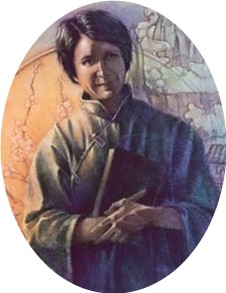
(1902-1970)
served 17 rigorous years in China without a furlough.
The silver planes that zoomed overhead sent the children scattering in all directions, falling face down and hiding behind rocks, under trees, and in tall grass. Gladys Alyward waited to see if the Japanese would return, and when she was certain the planes were gone, she called the children together again. On they journeyed, footsore, hungry, and fatigued, hoping they would soon reach their destination.
How did this petite British woman come to be mother of a hundred Chinese
children, trekking across the mountains of northern China?
Gladys Alyward applied to the China Inland Mission in 1929, but was refused on the basis of being too old and not learned enough. Disappointed, but not defeated, she worked as a maid in London to pay her own train fare. On October 15th, 1930, Gladys departed London. She crossed Russia, entered China, rode a mule for two days, and arrived tired and hungry in Yangcheng.
Gladys and Jeannie Lawson, a missionary of fifty-three years, opened an inn. Jeannie presented the Gospel to the guests every night, and Gladys worked intensely on the language. When after only a few months, Jeannie fell from a balcony and died, Gladys began traveling among the many villages of the surrounding mountains, taking the Gospel to the warmhearted mountain people.
Her ministry was interrupted in the spring of 1938 by planes screaming overhead. War began, and the Japanese bombed Yangcheng, killing many and devastating survivors. From then on, Gladys’ ministry took on new depth. She worked tirelessly, tending the wounded, burying the dead, and caring for her ever-growing brood of orphans. These were her people, and she loved them.
The fighting grew worse, and Gladys realized she had to get her children, now numbering 100, to a place where they could be safe, fed, and educated. Thus began the grueling two-week trek across the mountains to the city of Sian. With God’s strength, they reached safety without losing one child.
The strength that sustained Gladys Alyward is still available for us today. We may not know what the future will bring, but we do know that God will supply strength for our journey—and that is enough.